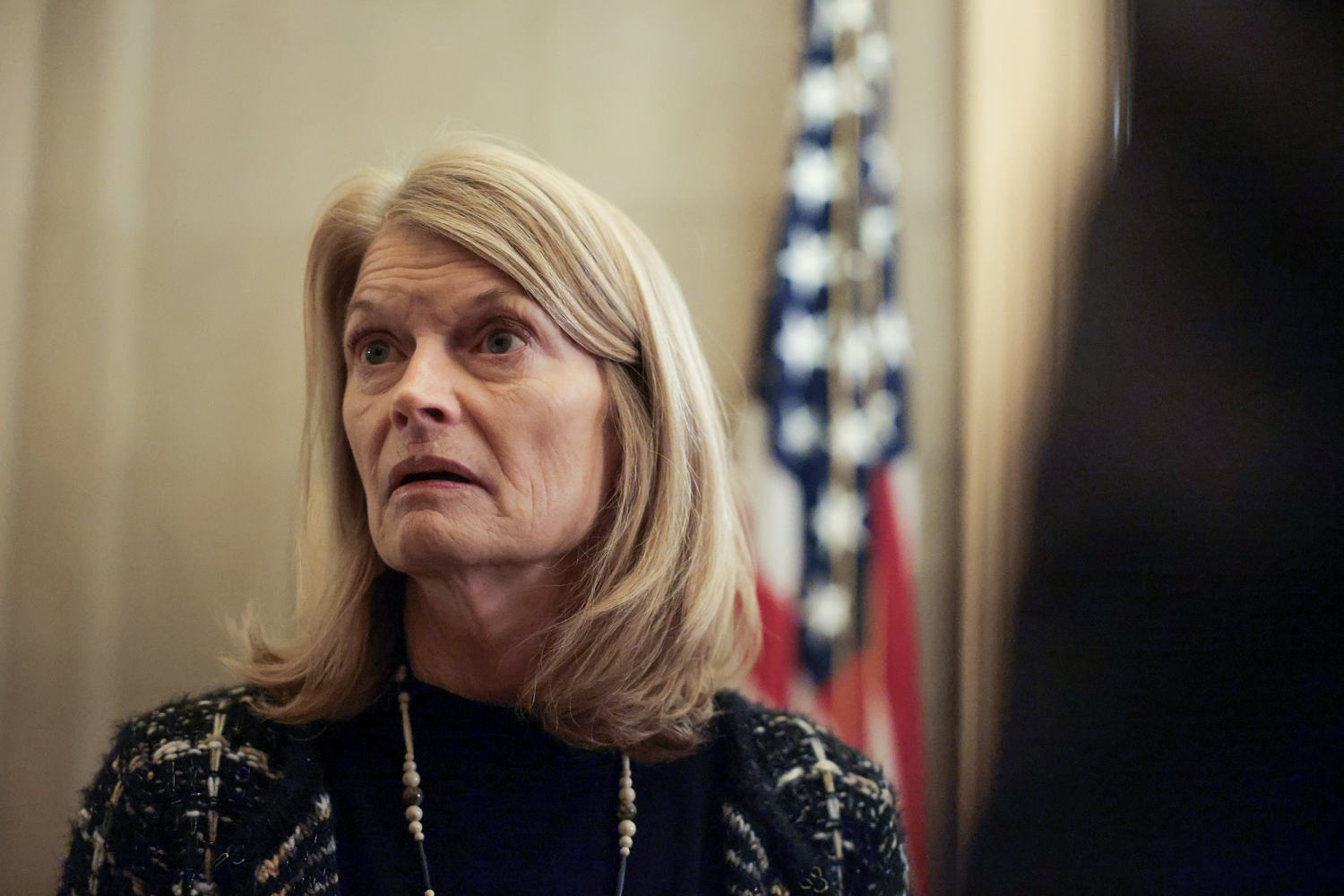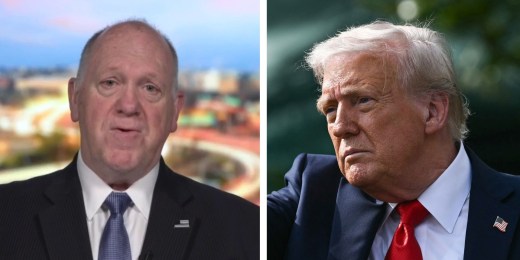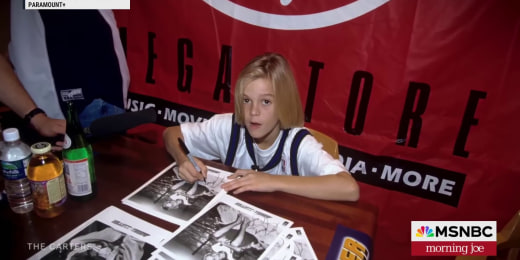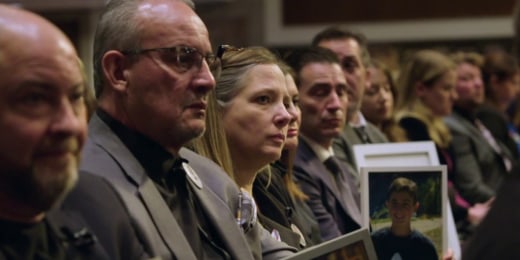The Dictatorship
Why this Jackie Robinson Day feels different than all the others

They say there are no stupid questions in journalism, and I tested that theory as a college newspaper reporter when I asked an MLB legend about the even more legendary Jackie Robinson. Was Robinson picked over more talented Negro League players to integrate baseball, I asked eight-time All-Star and former National League President Bill White“because he was so nice?”
“Nice?!” he shot back. “Jackie wasn’t nice! Jackie was tough!”
White apparently hadn’t gotten the memo about there being no stupid questions. “Nice?!” he shot back. “Jackie wasn’t nice! Jackie was tough!”
I’d like to believe that my question was not only a function of my youth but also evidence of the way that civil rights history has been taught in the United States. From Rosa Parks to Martin Luther King Jr. to John Lewis and Robinson, we’ve generally been fed a fairy-tale narrative that pits nice, perfectly pleasant and unoffending Black heroes against cartoonishly mean and ignorant white people. And, as in all fairy tales, the nice folks inevitably win.
On Tuesday, as it has since 2004, Major League Baseball is commemorating the day 78 years ago that Robinson played his first game with the Brooklyn Dodgers. But this Jackie Robinson Day lands in the middle of a conservative plot to eliminate talk of pioneering Black heroism and, more specifically, to eliminate mention of the villainy from white people that made Black heroism necessary.
The way that the history of American racism, and Black people’s response to it, has generally been taught is deeply flawed. It’s the equivalent of promoting PG-rated versions of R-rated historical events. But now the Trump administration is on a campaign to outright replace the truth of our history with deliberate distortions and lies, give a G rating to even the most disturbing American history, and essentially outlaw the telling of the truth.
Consider a recent edit the National Park Service made to a webpage that niceifies Harriet Tubman and the Underground Railroad. The Underground Railroad had been described as promoting “the resistance to enslavement through escape and flight” but was edited to suggest that it was a part of the “American civil rights movement” that bridged “the divides of race.”
The hell it did.
The previous language was restored — it was deleted by mistake, the park service stated — but a descendant of Tubman was right to ask, “Why do they want to erase our Black history? Why are we such a threat to certain Americans?” It wasn’t hard to answer her own question: “The answer is racism.” On one page managed by the National Park Service, according to The Washington Post, the phrase “enslaved African Americans” was changed to “enslaved workers.”
As mentioned in a previous column, somebody at the Defense Department, reportedly responding to President Donald Trump’s and Defense Secretary Pete Hegseth’s anti-DEI fixation, briefly removed a webpage that described Robinson’s time in the U.S. Army as a second lieutenant.
Years before Rosa Parks would do the same, Robinson had refused a bus driver’s order that he move to the back of a bus. Not only did he not accept the humiliation of being assigned to the rear, but in an argument that ensued, he told another soldier, “If you call me a n—– again, I’ll break you in two.”
Maybe if I’d heard more about that Robinson when I was a child, then I’d have known how foolish it was to describe him as “nice.”
When my family visited the Jackie Robinson Museum in Lower Manhattan last week, we saw a quote on display that reveals the discipline — or, as White put it, the toughness — that Robinson maintained. Not just for his sake, but for his people’s sake.
Maybe if I’d heard more about that Robinson, then I’d have known how foolish it was to describe him as “nice.”
Less than six months into his time in the majors, he told a writer for the New York Post, “Plenty of times, I wanted to haul off when somebody insulted me for the color of my skin…If I lost my chance, the Negro might lose his chance, too… The whole thing was bigger than me.”
The museum portrays him as a complicated figure who didn’t fit neatly into any of the boxes that we’ve placed Black civil rights activists into. He was too conservative for some Black people, too outspoken for some white people, and ultimately, it seems, it could be as hard to pin him down as it was to tag him out during a steal attempt. Malcolm X, who had been a fan, came to believe Robinson was too accommodating to white people, but Robinson would later stand with the Black Panthers in BrooklynNew York, as they challenged police brutality.
In ballparks across the country today, we’ll see players wearing No. 42 and we’ll see glowing tributes about Robinson’s contributions to the game and to the country. There may be some mention of his legendary toughness in the game. If so, I hope it’s made clear how tough he was off the diamond, too — and how the evils of racism and segregation made his toughness necessary.
The Dictatorship
‘We are all afraid’: GOP’s Lisa Murkowski admits she fears retaliation

More than any Republican in Congress, Sen. Lisa Murkowski of Alaska can be counted on for candor about the state of her party in the era of Donald Trump. In fact, late last year, about a month after the president won a second term, the senator conceded that she felt “more comfortable” with no party label than with “an identity as a Republican.”
The comments came a few years after Murkowski also saidin the wake of the Jan. 6 attack, “If the Republican Party has become nothing more than the party of Trump, I sincerely question whether this is the party for me.”
This week, the Alaskan raised eyebrows again with comments she hasn’t made publicly before. The Anchorage Daily News reported:
U.S. Sen. Lisa Murkowski told a room full of Alaska nonprofit leaders that the tumult of tariffs, executive orders, court battles, and cuts to federal services under the Trump administration are exceptionally concerning. “We are all afraid,” Murkowski said, taking a long pause. “It’s quite a statement. But we are in a time and a place where I certainly have not been here before. And I’ll tell ya, I’m oftentimes very anxious myself about using my voice, because retaliation is real. And that’s not right.”
A video of the clip reinforced the impression that the senator chose her words with care.
At the same event, Murkowski described some of the Trump administration’s recent moves as “unlawful” and “against the law.” She similarly expressed concern about the degree to which USAID had “just been obliterated,” described proposed GOP cuts to Medicaid as “devastating” and efforts to politicize the federal judiciary have brought the country to “a very dangerous place.”
Just as notably, the four-term Republican lawmaker acknowledged that Congress has allowed the executive branch to claim too much power. “It’s called the checks and balances. And right, now we are not balancing as the Congress,” Murkowski said.
In recent days, as coverage of the senator’s comments circulated, the broader conversation about her perspective has generally fallen into two camps. One was sympathetic: Many observers have noted that it’s exceedingly rare for any congressional Republican to make comments like these, out loud and in public, and that Murkowski is to be applauded for acknowledging the fears of retaliation that members feel.
The alternative reaction to her comments has been far less charitable: Murkowski is in a position of influence, and she could be using her power far more effectively to push back against the White House, its abuses, its corruption and its authoritarian tactics. There’s nothing wrong with applauding her comments, the argument goes, but it’s just as important to press the Alaskan on her support for Trump-backed bills and some of the White House’s highly unqualified nominees.
Indeed, let’s not forget that when the Republican Party’s far-right budget plan came to the Senate floor a couple of weeks ago, two GOP senator joined Democrats in voting against it — and Murkowski wasn’t one of the two.
Which reaction is the right one? I don’t want this to sound like a cop-out, but I think both are right. I’m glad Murkowski occasionally speaks out like this, and if it inspires some of her GOP colleagues to do the same, it could make a difference. I also believe that if Murkowski recognizes the seriousness of our current circumstances, it’s incumbent on her to do more than just offer candid comments to her constituents.
As the senator no doubt knows, she has other options — legislatively, procedurally, tactically, etc. — and if she really wants to shake things up, Murkowski can announce that she’s ending her formal affiliation with the GOP altogether, even if she continues to caucus with the party.
It’s genuinely awful that she’s afraid and feeling “very anxious,” and I couldn’t agree more that the circumstances that have led to these fears are “not right.” But it’s within the Alaskan’s power to help force a change, and I’ll continue to hope that she takes advantage of these opportunities.
Steve Benen is a producer for “The Rachel Maddow Show,” the editor of MaddowBlog and an BLN political contributor. He’s also the bestselling author of “Ministry of Truth: Democracy, Reality, and the Republicans’ War on the Recent Past.”
The Dictatorship
Team Trump reportedly contacted the IRS about a ‘high-profile friend of the president’

Election conspiracy theorist Mike Lindell has been in the news quite a bit lately. A few weeks ago, for example, the MyPillow founder expressed an interest in launching a Republican gubernatorial campaign in Minnesota.
A couple of weeks later, someone described as a “correspondent” for Lindell’s media operation appeared at a White House press briefing and asked a cringeworthy and overly sycophantic question about Donald Trump, sparking widespread ridicule. This week, the conspiracy theorist was back in the news, telling a judge he’s struggling to pay court-imposed sanctions because his finances are “in ruins” and “nobody will lend me any money anymore.”
But things aren’t all bad for Lindell. As The Washington Post reportedhe apparently still has friends in high places.
A Trump administration official in March asked the IRS to review audits of two “high profile” friends of President Donald Trump, including MyPillow chief executive and conservative political personality Mike Lindell, according to two people familiar with the request and records obtained by The Washington Post
According to the report, which has not been independently verified by BLN or NBC News, David Eisner, a Trump appointee at the Treasury Department, contacted senior IRS staff last month about an audit Lindell was facing. Soon after, the same official reportedly contacted the tax agency again, this time about a Republican state senator in Kansas named Rick Kloos.
Eisner reportedly used the phrase “high profile friend of the president” to describe Eisner and Kloos, and wrote that each was “concerned that he may have been inappropriately targeted.”
A related report in The New York Times noted that the IRS did not act on Eisner’s outreach, but the efforts “alarmed agency staff that President Trump hoped to use the tax collector to protect his friends and allies from normal scrutiny, concerns that have only grown as the Trump administration clears out agency leadership and pushes it to carry out Mr. Trump’s directions.”
And therein lies the point: If the IRS is going to survive and maintain its integrity, it must maintain its independence. The agency cannot be a political weapon — though, in the Harvard casethere’s reason to believe Trump sees it as a partisan tool — and just as notably, it can’t offer special treatment to the president’s pals and those politically aligned with the White House.
Nina Olson, who served as the national taxpayer advocate across multiple Democratic and Republican administrations, told the Post of the allegations, “That’s so inappropriate. In my 18 years as the national taxpayer advocate with over 4 million cases that came into the Taxpayer Advocate Service, in that time with taxpayers experiencing significant problems with the IRS, I have never had a Treasury official write me about a case.”
A spokesperson for Trump’s Treasury Department made no effort to deny the claims, instead telling the Times that Eisner “acted appropriately” and simply shared “relevant information” with the IRS. (Eisner did not respond to requests for comment, the Post reported, and a representative from the IRS declined to comment.)
Kloos’ attorney, meanwhile, told the Post that the Kansas legislator is “certainly not a close friend of the president”; he doesn’t know why Eisner contacted the IRS on his behalf; and he’s been engaged in a yearslong court fight over his organization’s tax-exempt status.
As for Lindell, he suggested that this is all just a misunderstanding and that the Treasury Department had “misconstrued” his request, which he said actually stemmed from a problem he was having with the Employee Retention Credit.
I don’t imagine we’ve heard the last of this one.
Steve Benen is a producer for “The Rachel Maddow Show,” the editor of MaddowBlog and an BLN political contributor. He’s also the bestselling author of “Ministry of Truth: Democracy, Reality, and the Republicans’ War on the Recent Past.”
The Dictatorship
‘We will follow the law’: Border czar Tom Homan on deportations


-

‘Wrong on the law, wrong on the facts’: Joe slams Trump WH on Abrego Garcia
12:59
-

New book recounts Paul Revere’s dramatic ride
03:21
-

How Europe views America’s political landscape
10:07
-
Now Playing

-
UP NEXT

Rubio warns U.S. will walk away from Ukraine peace deal if no progress made
07:46
-

‘The Carters’ looks at the impact of childhood stardom
07:28
-

‘Can’t Look Away’ examines how social media adversely impacts children
07:36
-

Europe’s future in a changing geopolitical landscape
10:46
-

Law firms made deals with Trump and now he wants more from them: NYT
06:16
-

‘I want to stay in business’: Small business owner pleads with Trump to reconsider tariffs
06:31
-

‘We do not disappear people’: Sen. Warren slams Trump WH over Abrego Garcia deportation
13:01
-

‘Devastating consequences’: Doctor warns of dangers of removing fluoride from water
04:36
-

Tesla hits bump in the road as sales slip: Steve Rattner
08:39
-

‘Must stand up against this now’: Hillary Clinton shreds Abrego deportation
09:32
-

‘Public opinion is turning’: Town halls get heated over Abrego Garcia’s return
10:48
-

‘We will not be driven by fear’: ‘Good Night, and Good Luck’ director on play’s importance
07:56
-

You’re declaring war on our friends: Governor lays out impact of trade war
04:40
-

Republicans reconsider their commitment to tax cuts for the rich in Trump agenda bill
03:37
-

‘Bad for all of us’: London’s mayor rebukes trade wars, protectionism, nativism
08:10
-

The living monitor their buried loved ones in body horror film ‘The Shrouds’
06:25
-

‘Wrong on the law, wrong on the facts’: Joe slams Trump WH on Abrego Garcia
12:59
-

New book recounts Paul Revere’s dramatic ride
03:21
-

How Europe views America’s political landscape
10:07
-
Now Playing

‘We will follow the law’: Border czar Tom Homan on deportations
22:38
-
UP NEXT

Rubio warns U.S. will walk away from Ukraine peace deal if no progress made
07:46
-

‘The Carters’ looks at the impact of childhood stardom
07:28
-

 The Josh Fourrier Show5 months ago
The Josh Fourrier Show5 months agoDOOMSDAY: Trump won, now what?
-
Uncategorized5 months ago
Bob Good to step down as Freedom Caucus chair this week
-

 Politics5 months ago
Politics5 months agoWhat 7 political experts will be watching at Tuesday’s debate
-
Economy5 months ago
Fed moves to protect weakening job market with bold rate cut
-
Uncategorized5 months ago
Johnson plans to bring House GOP short-term spending measure to House floor Wednesday
-

 Politics5 months ago
Politics5 months agoHow Republicans could foil Harris’ Supreme Court plans if she’s elected
-

 Politics5 months ago
Politics5 months agoRFK Jr.’s bid to take himself off swing state ballots may scramble mail-in voting
-
Economy5 months ago
It’s still the economy: What TV ads tell us about each campaign’s closing message










